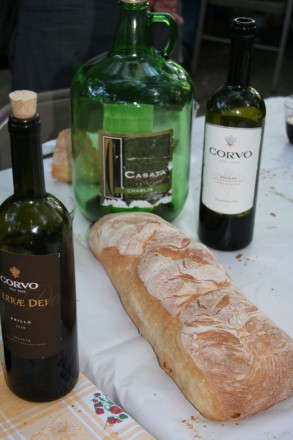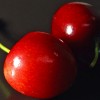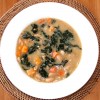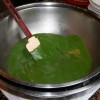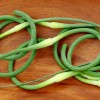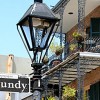Today a small pine grove in Hingham erupted in picnic tables covered with food and hundreds of people.
The little-known annual celebration was the 51stlocal Festa della Madonna della Luce – the Feast of the Mother of Light.
After the procession reaches the park-like grove, at the dead end of the street, the Madonna is installed in a small open-air, stage-like building and a priest holds a mass in Italian. At one point in the mass, all the young children gather on the steps of the stage. As they sit, a woman tells the legend of the Mother of Light, the miracles she performed — her first was the saving of drowning boys — and how she came to be Palermiti’s patron. And the minute the story and the mass are over, the feast begins!
